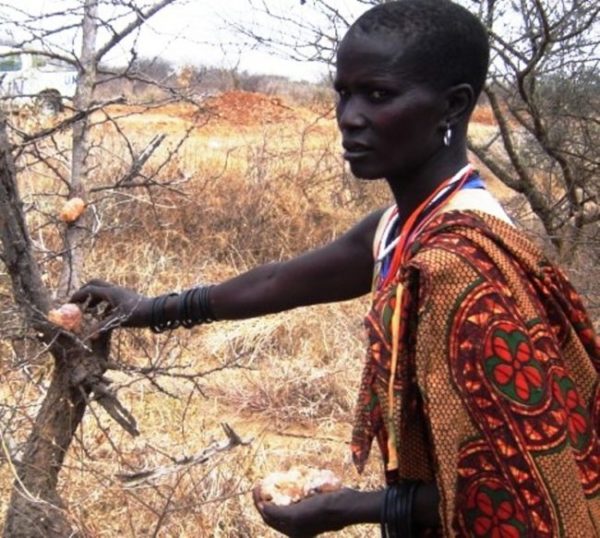The Uganda Gum Arabic Cooperative Society in Karamoja sub region has registered a drop in harvest volumes over the past year due to widespread deforestation of the gum Arabic trees.
Gum Arabic is a popular, naturally-occurring gum that’s often used as a stabilizer for packaged foods as well as in cosmetics and art products.
Jimmy Lomokol, the Chairperson of Uganda Gum Arabic Cooperative Society said the trees are often cut down by members of the local community for charcoal burning, or to open up land for cultivation and settlement.
“Last year we only harvested 110 kilograms compared to an average of 700 kilograms that we used to harvest in previous years,” he said, adding that the 2,000-member cooperative that was formed in 2002 risks collapse should the current situation persist.
Over the years, the cooperative, with support from Kenya Asal Resource Agency (KARA) Ltd has trained more than 600 women and men in Karamoja on how to harvest, pack and sort the gum for sale.
As the number of trees dwindles, and the elusive gum becomes even harder to find, many who have come to rely on the sale of gum Arabic fear their livelihoods could be under threat.
Mary Nangiro, a mother of six and resident of Kautakou village in Napak district, is one such beneficiary.
“I have been collecting the gum for three years now and selling it to the cooperative in order to get money for food and pay my children’s school fees. But finding gum is getting harder since people have destroyed most of the trees for charcoal burning,” she said.
Lucrative crop
According to Lomokol, gum Arabic is a lucrative export product with high demand on the international market.
Ordinarily, the cooperative buys the gum from locals at Shs 1,700 per kilogram (about 0.5 dollars) and sells it to foreign traders at anywhere between 1.3 and 3.7 dollars per kilogram, depending on the market.
In recent years, the product has been attracting attention from prominent buyers, the cooperatives.
” Last year we received a big number of foreign traders who had camped in Karamoja to buy gum. They included Hill Group Company from Ireland and SNI Company based in France, China, Thailand and India,” he says.
Climate change effects
But deforestation is not the only reason for declining gum Arabic harvests. According to Lokomol, the changing climate is also a big factor.
Over the last five years, both the average rainfall and humidity in Karamoja have increased, which is not conducive for gum Arabic production, he says.
“For the trees to release the gum they must be stressed by hot climate which needs to average about 31 degrees for a period of 21 days under low humidity conditions. You also need strong winds so that the trees can scratch against each other in order for the gum to come out,” Lokomol explains.
